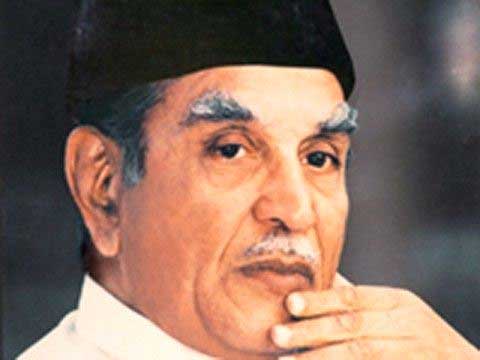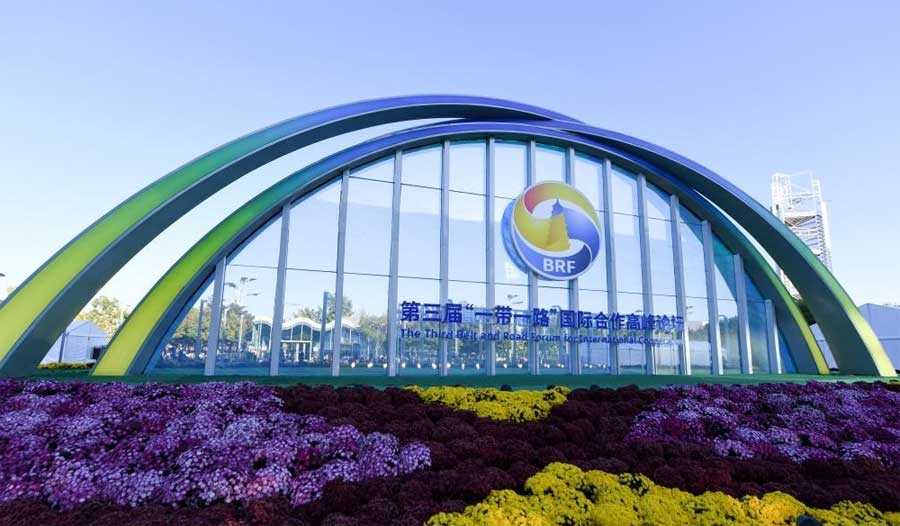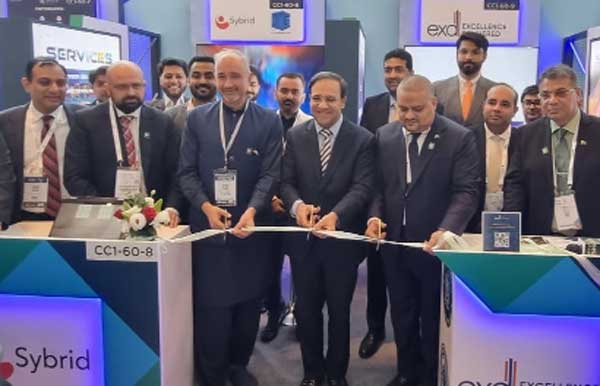
Remembering the enduring legacy
Shaheed Hakim Mohammed Said
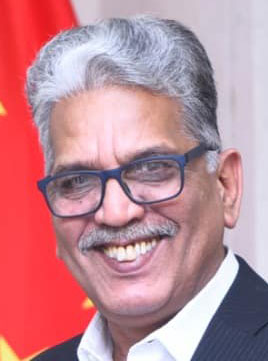
Hakim Mohammed Said, a prominent figure in Pakistan’s history, left an indelible mark on the fields of herbal medicine and holistic healing. Born into a lineage of renowned physicians, his life and career were deeply influenced by his family’s rich tradition of alternative medicine.
Hakim Mohammed Said was born on January 9, 1920, in Delhi, India, into a family that had cultivated a strong tradition of herbal medicine and holistic healing. His father, Hakim Hafiz Mohammed Abdullah, was a highly respected physician, known for his expertise in the Unani system of medicine. Growing up in this nurturing environment, young Hakim Said was exposed to the art and science of healing from an early age.
Hakim Said, also known as Shaheed-e-Millat (Martyr of the Nation), was a visionary leader who dedicated his life to the betterment of society through medicine, education, and social reform. His Martyr on October 17, 1998 left a void that Pakistan has struggled to fill.
Educational Pursuits
After completing his early education in Delhi, Hakim Said embarked on a journey to acquire formal education in the field of medicine. His academic pursuits led him to Aligarh Muslim University, where he enrolled in the Bachelor of Medicine and Surgery (BMS) program.
During his time at Aligarh Muslim University, Hakim Said exhibited exceptional dedication and a thirst for knowledge. He studied the Unani system of medicine, a traditional healing practice passed down through generations. His academic excellence and commitment to Unani medicine earned him recognition among his peers and professors.
Establishment of Hamdard Dawakhana Waqf
Hakim Said’s vision extended beyond personal success. In 1948, he founded the Hamdard Dawakhana Waqf, an organization aimed at promoting and preserving the Unani system of medicine and holistic healing. Under his leadership, this institution grew into a renowned center, offering research, education, and healthcare services, reflecting Hakim Said’s deep-rooted values.
Hamdard Foundation and Global Reach
Hakim Mohammed Said was instrumental in establishing the Hamdard Foundation in Pakistan. The foundation focused on research and development in traditional medicine, running clinics, and providing free medical care to the underprivileged. His efforts were pivotal in preserving and promoting the rich heritage of Unani medicine in the subcontinent. Under his visionary leadership, Hamdard grew to become a global brand, exporting its products to numerous countries.
A Beacon of Public Service and Leadership as Governor of Sindh
Hakim Mohammed Said was a luminary in the field of medicine, philanthropy, and public service in Pakistan. His remarkable career saw him in various leadership roles, one of the most prominent being his term as the Governor of Sindh Province from 1993 to 1996. During his tenure, Hakim Mohammed Said left an indelible mark on the region through his unwavering commitment to public service and leadership.
Early Life and Education
Hakim Mohammed Said was deeply influenced by his family’s legacy of traditional herbal medicine and Unani healing practices. His relentless quest for knowledge led him to establish Hamdard University, an institution that continues to be a center of excellence in various fields.
Promotion of Traditional Medicine
Hakim Mohammed Said made it his mission to promote traditional forms of medicine, particularly Unani and Ayurvedic practices. He believed in the importance of preserving and revitalizing Pakistan’s rich heritage of natural healing. Under his leadership, the Sindh government took significant steps to integrate traditional medicine into the healthcare system.
Educational Reforms
Hakim Mohammed Said’s dedication to education transcended his role at Hamdard University. During his tenure as Governor, he championed several educational reforms in Sindh, underscoring the significance of providing high-quality education to all, regardless of their socio-economic backgrounds. His policies played a pivotal role in enhancing educational accessibility within the province.
In addition to his remarkable contributions to the field of medicine, Hakim Mohammed Said left an indelible mark on education in Pakistan. In 1991, he founded Hamdard University, an institution of higher learning committed to merging contemporary education with timeless values. The university offered a wide array of programs spanning medicine, pharmacy, humanities, and social sciences.
Healthcare, Culture, and Philanthropy
Recognizing the pressing need for accessible healthcare services, Hakim Mohammed Said dedicated himself tirelessly to the expansion of healthcare facilities throughout Sindh. Under his leadership, the government took significant steps to enhance the public health infrastructure, ensuring that healthcare became more readily accessible to the province’s residents.
Hakim Mohammed Said was an unwavering advocate for the preservation and promotion of Pakistan’s rich cultural heritage. His unwavering support for cultural events, festivals, and artistic initiatives celebrated the vibrant diversity woven into the cultural fabric of Sindh.
Hakim Mohammed Said’s philanthropic efforts were equally remarkable. He held a deep commitment to the welfare of the underprivileged and spearheaded various initiatives aimed at improving their living standards. The Hamdard Foundation Pakistan emerged as a crucial player in this noble cause, providing essential services such as free medical care, education, and vocational training to those in need.
Legacy and Acknowledgment
Hakim Mohammed Said’s extraordinary contributions to Pakistan garnered widespread recognition during his lifetime. He received numerous prestigious awards and honors, including the Sitara-i-Imtiaz, Pakistan’s third-highest civilian accolade, bestowed upon him in 1969. In 1998, he posthumously received the Nishan-e-Imtiaz, the highest civilian honor in Pakistan, in profound acknowledgment of his outstanding societal contributions.
Hakim Mohammed Said’s life stands as a testament to the transformative influence of unwavering dedication and boundless compassion. His ceaseless efforts in the fields of medicine, education, and philanthropy continue to serve as an enduring source of inspiration for generations in Pakistan and beyond. Remembering this visionary leader vividly reminds us of the profound and positive impact that a single individual can have on society, driven by a deep sense of purpose and an unswerving commitment to improving the world.
Hakim Mohammed Said’s tenure as the Governor of Sindh was marked by his unwavering commitment to public service and visionary leadership. His pioneering initiatives in healthcare, education, and the promotion of traditional medicine remain a lasting gift to the people of Sindh and the entire nation of Pakistan. His legacy transcends his time in office, as the institutions and initiatives he championed continue to enrich society and leave an indelible mark.
On October 17, 1998, the nation mourned the loss of a great leader when Dr. Hakim Said was assassinated. His murderers aimed to silence his progressive voice, but they failed to extinguish the flame he had ignited. Dr. Hakim Said’s legacy lives on through the institutions he established, the lives he touched, and the principles he upheld.
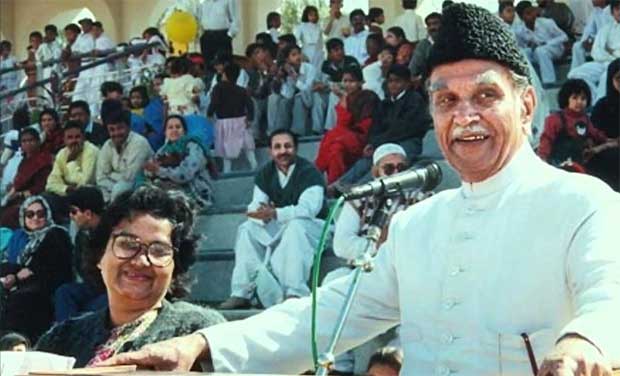
Dr. Hakim Said was indeed a martyr, not only for Pakistan but for the ideals of education, healthcare, and social justice. His contributions continue to benefit generations of Pakistanis, and his memory serves as a wellspring of inspiration for those dedicated to the betterment of society. Dr. Hakim Said’s legacy is a powerful testament to the impact one individual’s vision and determination can have in bringing about positive change in the world.
Sadia Rashid: Continuing the legacy of Hakim Said
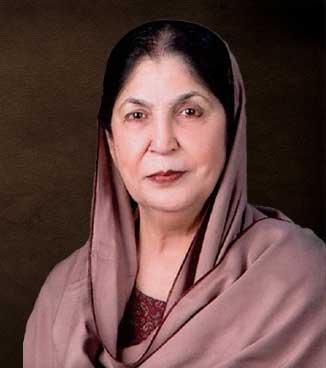
Ms. Sadia Rashid, the daughter of the renowned philanthropist and visionary, Hakim Mohammed Saeed, has not only inherited her father’s legacy but has also taken it to new heights. Hakim Said was a prominent figure in Pakistan’s healthcare and education sectors, and Ms. Sadia Rashid has followed in his footsteps, working tirelessly to promote his vision of a healthier and more educated Pakistan.
Early Life and Education
Born into a family dedicated to the service of humanity, Ms. Sadia Rashid was exposed to the principles of compassion, philanthropy, and education from an early age. She received her initial education in Pakistan and then went on to pursue higher studies abroad. Her academic journey included degrees in business administration and healthcare management, which equipped her with the knowledge and skills necessary to carry forward her father’s mission.
Carrying Forward Hakim Said’s Legacy
Ms. Sadia Rashid’s father, Hakim Said, was the founder of Hamdard Foundation Pakistan, an organization dedicated to providing healthcare and education services to the underserved communities of Pakistan. Under his leadership, Hamdard Foundation Pakistan became a symbol of hope and empowerment for countless individuals. After the tragic assassination of Hakim Said in 1998, Ms. Sadia Rashid took the reins of the organization and committed herself to preserving and expanding her father’s legacy.
Healthcare Initiatives
One of the primary focuses of Ms. Sadia Rashid’s work has been the continuation and expansion of healthcare initiatives in Pakistan. Hamdard Foundation Pakistan runs a network of hospitals, clinics, and dispensaries across the country, providing quality healthcare services to those who cannot afford them. Ms. Sadia Rashid has been instrumental in modernizing and expanding these facilities, ensuring that they meet international standards of healthcare.
Education Initiatives
Education was a cause close to Hakim Said’s heart, and Ms. Sadia Rashid shares this passion. Under her leadership, Hamdard Foundation Pakistan has established schools and colleges in underserved areas, enabling thousands of children to access quality education. The foundation also provides scholarships to deserving students, making higher education more accessible. Ms. Sadia Rashid’s commitment to education is a testament to her father’s belief that knowledge is the key to progress.
Promoting Traditional Medicine
Hakim Said was a renowned practitioner of traditional Unani medicine, and Ms. Sadia Rashid continues to promote this ancient healing tradition. Hamdard Foundation Pakistan operates clinics and research centers dedicated to the study and promotion of Unani medicine. Ms. Sadia Rashid believes in the holistic approach to healthcare that Unani medicine offers, and she strives to integrate it with modern medical practices.
Philanthropy and Social Welfare
In addition to her work with Hamdard Foundation Pakistan, Ms. Sadia Rashid is actively involved in various philanthropic and social welfare initiatives. She supports projects that focus on poverty alleviation, women’s empowerment, and community development. Her dedication to improving the lives of marginalized communities reflects the values instilled in her by her father.
In brief, Ms. Sadia Rashid, the daughter of Hakim Said, has continued her father’s legacy of service to humanity with unwavering dedication. Through her leadership of Hamdard Foundation Pakistan and her involvement in various philanthropic endeavors, she has made a significant impact on healthcare, education, and social welfare in Pakistan. Ms. Sadia Rashid’s tireless efforts to carry forward her father’s vision serve as an inspiring example of the power of commitment and compassion in creating a better future for a nation.
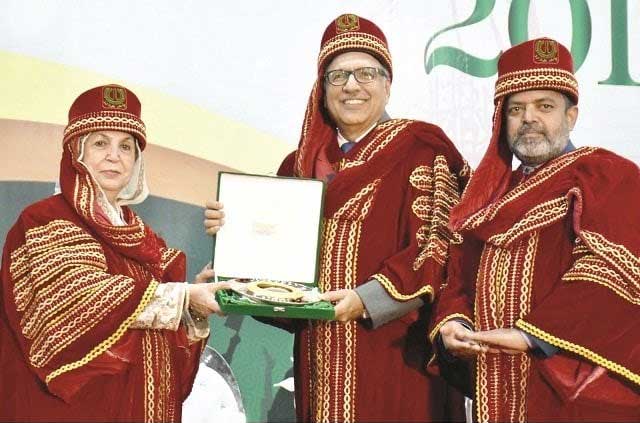
Madinatul Hikmat: Nurturing Wisdom and Knowledge at Hamdard University
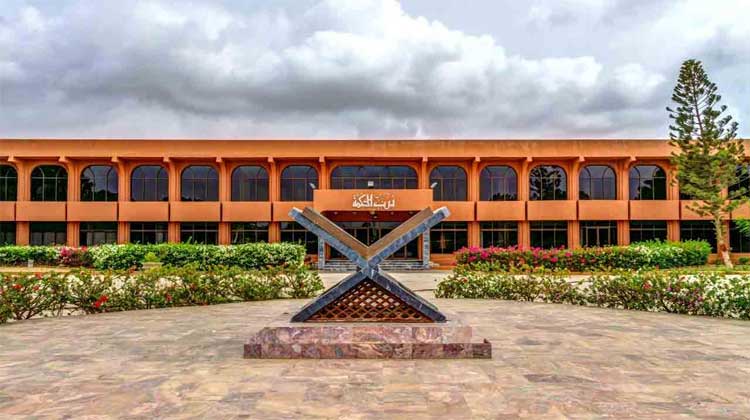
Nestled amidst the bustling city of Karachi, Pakistan, lies a bastion of education, culture, and heritage – Madinatul Hikmat, the Hamdard University. Founded by the visionary Hakim Mohammed Said in 1991, this institution stands as a testament to his lifelong commitment to advancing education, holistic health, and traditional wisdom.
A Legacy of Wisdom and Healing: Hakim Mohammed Said was not merely a philanthropist but a beacon of wisdom in his own right. He was a renowned scholar and practitioner of Tibb-e-Unani, the traditional Greco-Arabic system of medicine. He believed that true education goes beyond textbooks and classrooms, encompassing the body, mind, and soul. This philosophy laid the foundation for Hamdard University, where students are encouraged to embrace a holistic approach to learning.
Academic Excellence: Madinatul Hikmat offers a wide array of academic programs, ranging from the humanities and social sciences to medicine and engineering. The university is home to several faculties and institutes, including the Faculty of Pharmacy, Faculty of Engineering Sciences and Technology, and the Madinatul Hikmat Institute of Higher Education. These institutions strive for academic excellence, fostering a culture of critical thinking, research, and innovation.
One of the jewels in Madinatul Hikmat’s crown is the Hamdard Institute of Medical Sciences (HIMS), which includes the Hamdard College of Medicine and Dentistry. This medical college is renowned for producing skilled healthcare professionals who uphold the values of compassion and healing.
Preserving Tradition and Culture: Hakim Mohammed Said believed in the importance of preserving the cultural heritage of the region. The university’s unique blend of modern education and traditional values reflects this commitment. The Hamdard Institute of Education and Social Sciences (HIESS) offers programs in subjects like Islamic Studies, Urdu, and Pakistan Studies, allowing students to connect with their roots and appreciate the richness of their culture.
Research and Innovation: Madinatul Hikmat places a strong emphasis on research and innovation. The Hamdard Foundation Pakistan (HFP) actively supports research activities across various disciplines. Whether it’s conducting groundbreaking medical research, exploring innovative engineering solutions, or delving into the depths of social sciences, the university encourages students and faculty alike to push the boundaries of knowledge.
Cultural and Extracurricular Activities: The University’s campus is a vibrant hub of cultural activities and extracurricular pursuits. From music and arts festivals to sports events and literary gatherings, Madinatul Hikmat provides a well-rounded education that goes beyond the classroom. These activities nurture creativity, teamwork, and leadership skills among students.
Madinatul Hikmat, Hamdard University, stands as a beacon of wisdom, knowledge, and tradition in the heart of Karachi. Inspired by the vision of its founder, Hakim Mohammed Said, the university continues to educate and inspire generations of students. With its commitment to academic excellence, research, and preserving cultural heritage, it has become a symbol of Pakistan’s rich intellectual and cultural legacy. As students pass through its hallowed halls, they are not just gaining an education but imbibing the wisdom of Madinatul Hikmat – the city of wisdom.


